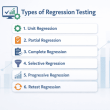The PSLE examination, or Primary School Leaving Examination, is a critical milestone in a student’s academic journey in Singapore. It determines the secondary school a student will attend and plays a key role in shaping future educational pathways. While it may seem daunting, with the right preparation, understanding of the exam format, and practical tips, students can approach the PSLE with confidence.
This guide covers everything you need to know about the PSLE examination its format, subjects, scoring system, and effective preparation strategies.
What is the PSLE Examination?
The PSLE examination is a national exam taken by all Primary 6 students in Singapore. Conducted by the Ministry of Education (MOE), the PSLE assesses students in four core subjects: English, Mathematics, Science, and Mother Tongue Language (MTL). The results help determine the most suitable secondary school track for each student—Express, Normal (Academic), or Normal (Technical).
The main purpose of the PSLE is not just to test academic knowledge, but also to evaluate a student’s readiness for the next stage of education.
PSLE Examination Format
Understanding the structure of the PSLE examination is the first step in preparing effectively. Here is an overview of the four main subjects:
1. English Language
-
Components: Writing (composition), Language Use and Comprehension (grammar, vocabulary, comprehension), Listening Comprehension, and Oral Communication.
-
Focus: Reading comprehension, creative and situational writing, spoken English fluency.
2. Mathematics
-
Components: Paper 1 (short-answer and multiple-choice questions), Paper 2 (longer structured questions).
-
Focus: Problem-solving skills, concepts like fractions, percentages, geometry, algebra, and data analysis.
3. Science
-
Components: Multiple-choice and open-ended questions.
-
Focus: Scientific concepts, application of knowledge, experimental reasoning, and explanation skills.
4. Mother Tongue Language (MTL)
(Malay, Tamil, or Chinese Language)
-
Components: Composition, Comprehension, Listening, and Oral.
-
Focus: Reading, writing, and conversational skills in the respective mother tongue.
PSLE Scoring System
As of 2021, the PSLE examination uses the Achievement Level (AL) system instead of the old T-score model. Each subject is graded from AL1 to AL8, with AL1 being the best score. The total PSLE Score is the sum of the AL scores from the four subjects, ranging from 4 (best) to 32.
PSLE Achievement Levels (AL):
| AL | Marks Range |
|---|---|
| 1 | 90–100 |
| 2 | 85–89 |
| 3 | 80–84 |
| 4 | 75–79 |
| 5 | 65–74 |
| 6 | 45–64 |
| 7 | 20–44 |
| 8 | <20 |
A lower score indicates better performance, and the score will determine which secondary school and stream a student qualifies for.
How to Prepare for the PSLE Examination
Preparation for the PSLE examination requires planning, discipline, and the right techniques. Here are some practical strategies:
1. Create a Study Schedule
Start early and develop a realistic timetable. Break down topics by week and set daily goals. Consistency is more effective than last-minute cramming.
2. Understand the Exam Format
Go through past-year PSLE papers and familiarize yourself with the question patterns. This builds confidence and reduces exam anxiety.
3. Practice Makes Perfect
Solve sample papers regularly. Time yourself to simulate real exam conditions. Focus on weak areas and revisit challenging topics until you’re comfortable.
4. Use Visual Aids
For Science and Math, use charts, diagrams, and flashcards to remember formulas and key concepts. Visual memory often helps in retaining complex information.
5. Read Widely for English
Encourage reading newspapers, storybooks, and articles. Reading improves vocabulary, sentence structure, and comprehension skills.
6. Improve Mother Tongue Proficiency
Speak the language at home, watch shows in your mother tongue, and read children’s books or newspapers. Practice writing short essays to improve fluency and grammar.
7. Take Breaks and Stay Healthy
Avoid burnout by incorporating short breaks. Exercise, sleep, and healthy food play a vital role in improving concentration and memory.
8. Seek Help When Needed
If certain subjects are challenging, consider enrolling in tuition or online learning platforms. Quality guidance can make a big difference.
Parental Support During PSLE Preparation
Parents play a vital role in their child’s PSLE examination journey. Here’s how you can help:
-
Stay Encouraging: Motivate and praise effort, not just results.
-
Provide a Conducive Study Environment: A quiet, well-lit space is essential for focused learning.
-
Balance and Emotional Support: Understand that every child is different. Offer emotional support to ease stress and pressure.
-
Monitor Without Micromanaging: Check progress periodically but avoid over-involvement, which may add pressure.
Useful Resources for PSLE Preparation
Here are some recommended tools and platforms to support PSLE examination prep:
-
MOE Singapore Website: Official updates, syllabus outlines, and exam resources.
-
Assessment Books: Popular titles like SAP Books, Marshall Cavendish, and My Pals Are Here series.
-
Online Learning Platforms: Many offer interactive video lessons, quizzes, and PSLE mock tests.
-
Educational YouTube Channels: Free visual content on Science experiments, Math problem-solving, and writing techniques.
Common Mistakes to Avoid
-
Last-Minute Studying: Leads to stress and poor retention.
-
Ignoring Weak Areas: Always work on improving what you find hard.
-
Not Practicing Writing or Oral Skills: Especially in language subjects, active practice is necessary.
-
Over-reliance on Tuition: Self-discipline and personal effort matter most.
Conclusion
The PSLE examination may feel like a high-stakes test, but with proper preparation, support, and mindset, students can succeed with confidence. It’s not just about academic scores but also about building habits like discipline, time management, and perseverance.












